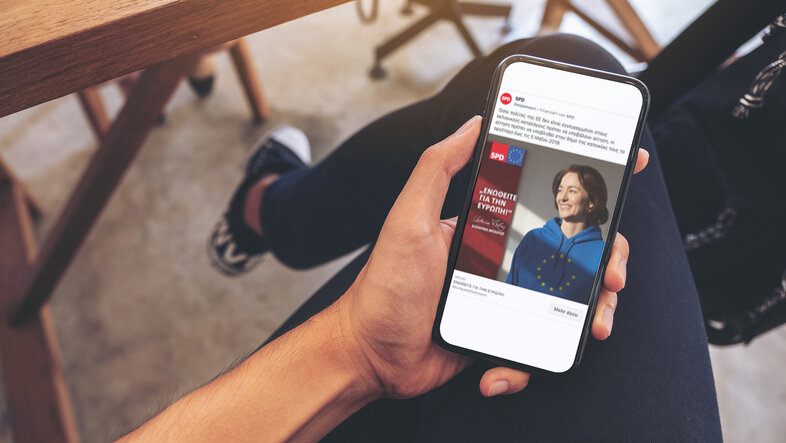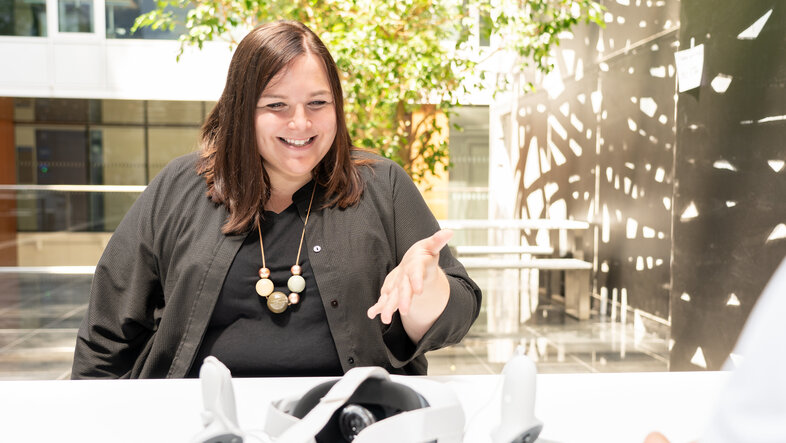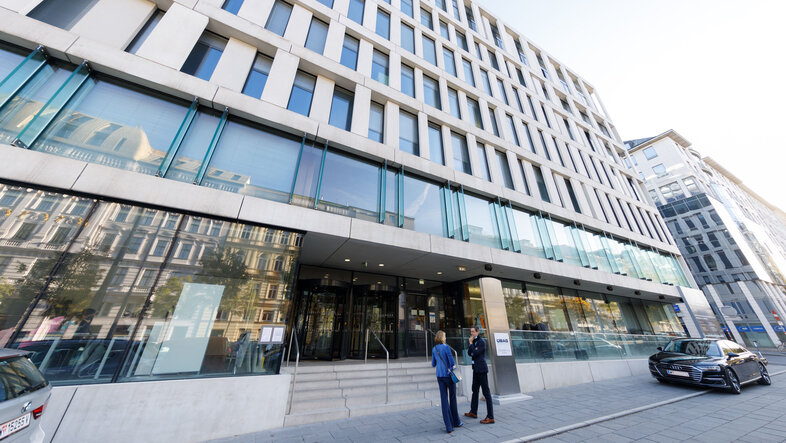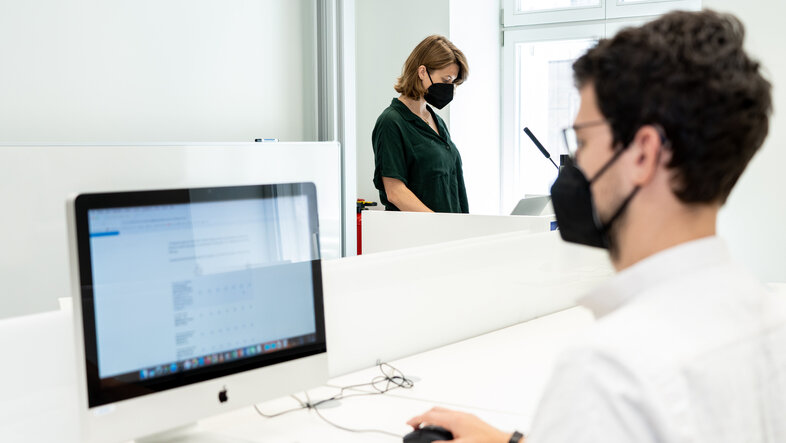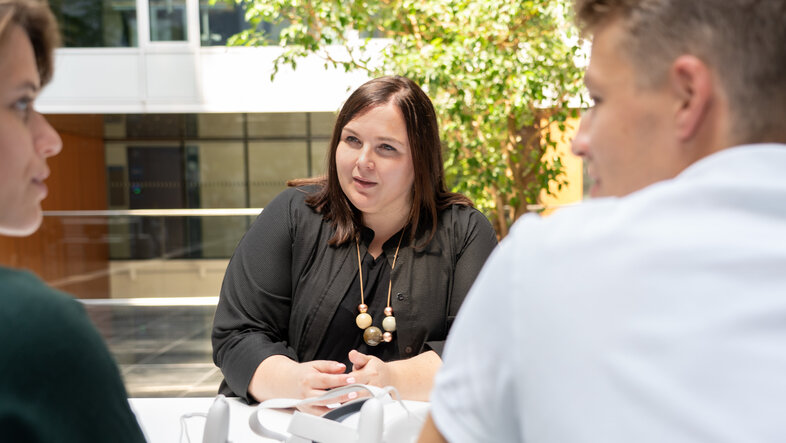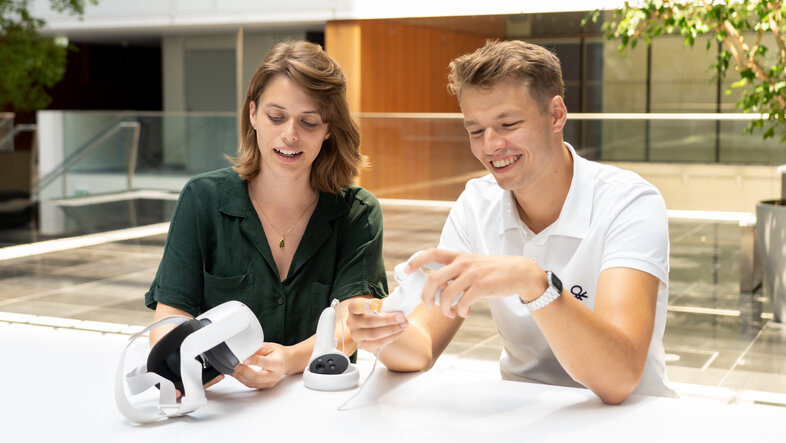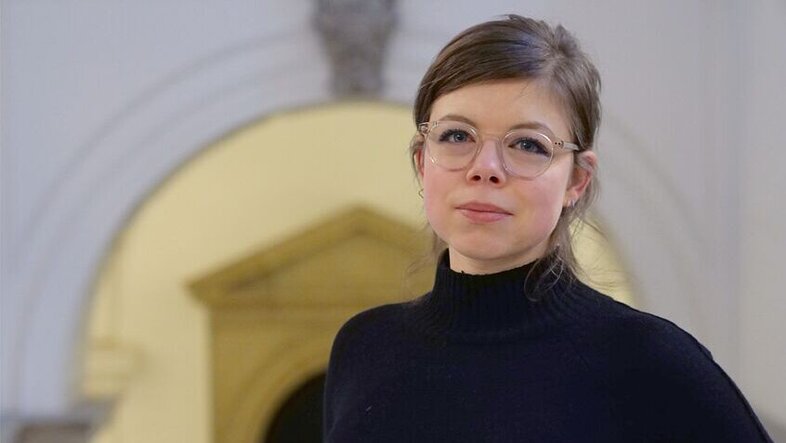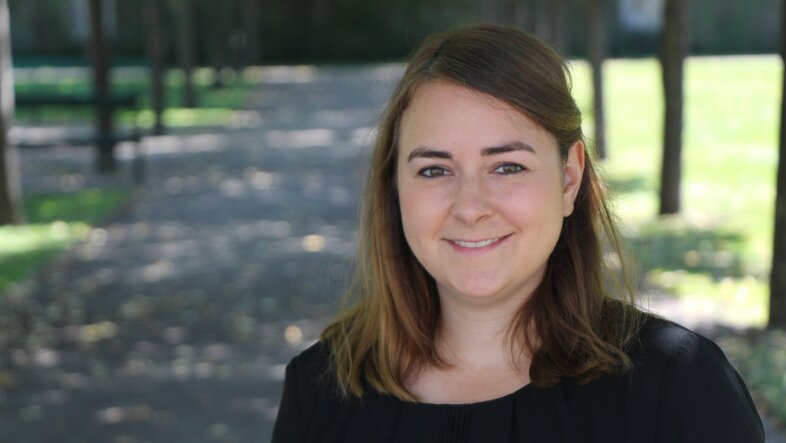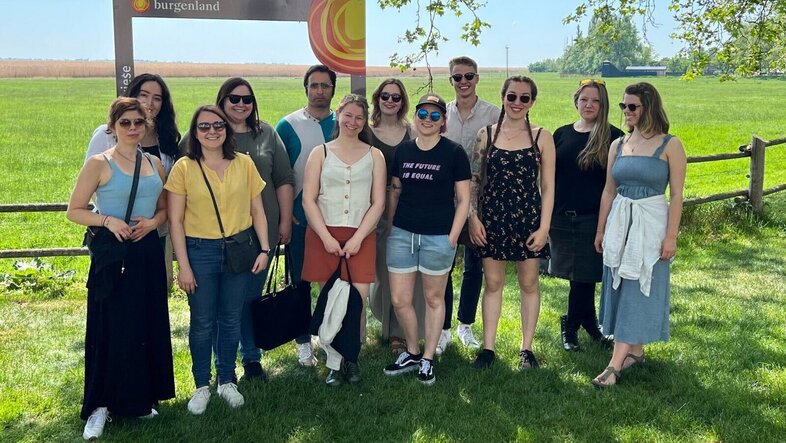How much algorithm can democracy take?
You recently talked about your plans for the holidays with your friend and shortly after an appropriate travel advertisement is displayed in your profile? If advertisement on the Internet becomes too personal, this can also have a negative effect. Advertisement research refers to this as creepiness effect. It is creepy if the Internet knows us too well. When even political parties are now daring to use the new individualised advertisement strategies and "do actually not really know what they are doing", it is not very unlikely that it backfires and scares off people instead of winning people who vote for them.
Since we are applying different moral standards to politics and the private sector, we also assess the use of social media in politics differently: Therefore, we may consider it especially creepy if a political party with whom we had almost nothing to do previously, contacts us online out of a sudden, explains communication researcher Sophie Lecheler. What does this then mean for our way of handling political information, our electoral behaviour, our trust in democracy if politicians are "dropping by" our profiles and tailor their campaign messages to our preferences and needs?
Information flows are central processes in democracy. Most probably, these are even what decides if and how today’s democracies work.Sophie Lecheler
What is "still healthy" from a democratic point of view?
Sophie Lecheler and her 15 team members at the University of Vienna are conducting political communication research. In our interview, the media expert explains what this actually entails: "We are looking at how humans or organisations in the public sphere communicate topics of social policy and which role this plays in the development of democracy." Their research is aimed at paving the way for a "democratically healthy" media communication that may not only disseminate news based on conflict but also initiates solutions.
Meet the scientists: Video interview with Sophie Lecheler and her team
Show me your social media profile and I tell you who you vote for
Shifting electoral campaigns to the digital realm is a central topic of political communication and is at the centre of the current large-scale project DATADRIVEN, in which the team of the University of Vienna is putting their heads together with colleagues from Amsterdam, Wageningen, Manchester and Sheffield, and which is also part of the EU programme Democratic Governance in a Turbulent Age with a high funding volume. Lecheler and her colleagues are investigating the desired and undesired consequences of data-based electoral campaigns for democracy – for the first time in international comparison: "We are the first research team that gives comprehensive insight into data-driven electoral campaigns and shows differences between countries. For example, we are comparing data from the parliamentary elections in the Netherlands and the German Bundestag elections in 2021", explains Sophie Lecheler while walking along long aisles, passing bright office rooms, seminar rooms and laboratories on the way to her office at the University of Vienna on the sixth floor in the Kolingasse building.
Microtargeting: Constant dripping wears away the opinion
The topic of political microtargeting captured broad public attention for the first time in 2016, when whistle-blowers made public the practices of Cambridge Analytica. The company headquartered in New York had collected personal data of millions of potential voters and influenced their voting behaviour by means of tailor-made messages, including the presidential election in the US, which Donald Trump won or the Brexit referendum in Great Britain five years ago. Until now, however, we do not know the actual effect of the methods used by Cambridge Analytica, explains Lecheler.
What is microtargeting?
Of course, political campaigns have been run on TV, radio or billboards at the city limits for a long time. Academics could exactly determine which political communication took place before the elections and thus analyse cause-effect relationships. Today electoral campaigns have been shifted to the digital realm and political parties are using social media deliberately. Based on social data, such as age, gender and place of residence as well as pages we liked or posts we shared, we receive tailor-made electoral ads directly in our news feeds (such as on Facebook) due to algorithms.
Also Austrian parties are using microtargeting, for example, during the ongoing presidential election campaign. In Austria, political ads are mainly distributed through Facebook, which is still the most frequently used social network in Austria. "You should of course not consider this a ‘silver bullet’ that changes our perspective, i.e. our electoral behaviour by 180°," says Sophie Lecheler, "But from advertising research we know that repetition works, and in social networks ads often ‘hit’ us in unexpected moments, in which we might be more open." Algorithm-based advertisement strategies are mainly used to reach people who have not yet taken a political decision.
Image gallery: a visit to Sophie Lecheler and her team
This certainly also has a good side: Microtargeting on social media also allows smaller political parties that cannot rely on millions of euros to effectively run electoral campaigns. This allows to increase the diversity in the landscape of political parties. Moreover, microtargeting allows to address groups that are ‘often forgotten’ and inform them about political agendas. This includes migrants, the youth and the elderly. "Digital technologies have a huge democratic potential since they allow all citizens to participate in political discourse," says Lecheler. She continues, "But you have to use this first."
On social platforms, users can exchange ideas, engage in discussions and communicate directly with the elite. This way, it may be possible to rediscover basic democratic processes that have been lost in the past decades.Sophie Lecheler
When election campaigns become a black box
How citizens are addressed by which political parties in which way in the digital realm has, however, become a black box for academic research due to new developments. "We do not receive these data from political parties for understandable reasons, but we do not receive them from platforms, such as Meta (note: US technology company, to which Facebook, Instagram or WhatsApp, among others, belong) either", says Sophie Lecheler. In theory, these platforms are obliged to label sponsored posts in an ad library, but in practice they do not always follow this obligation. "Many of these libraries are incomplete," she criticises.
Therefore, researchers have to rely on so-called data donations, i.e. donations by users who submit screenshots of their news feed and answer questions, or who install data donation apps allowing the team to follow ways in which users are targeted during times of electoral campaigns. On a large scale, the satirist Jan Böhmermann initiated such a data donation campaign to reveal the microtargeting of German political parties on the occasion of the Bundestag election in 2021. Afterwards, he also made the data available to research. In addition to the analysis of data donations, the team at the University of Vienna is also conducting experimental studies to analyse the effect of personalised electoral ads on users.
Donating data to support research
If you would also like to support political communication research at the University of Vienna, you can make a data donation as part of the current The Good News Projects. In this project, Sophie Lecheler's team would like to know from the Austrian population which news they especially like and why. All information about participation can be found here (in German)
Many political parties do not know what they are doing
We know that the topic microtargeting is accompanied by many fears and still little specialist knowledge, especially with regard to the potential manipulation of voters before elections. The first results obtained by Sophie Lecheler and her team, however, give a – preliminary – all-clear signal: We are far away from perfect targeting. If it is done well, it does not fail to have the desired effect, but the ads are often matched in an imprecise or rough way. If citizens perceive that they are wrongly addressed, e.g. if a confirmed ÖVP voter receives an SPÖ ad or an ad about a topic in which they are not interested, the ad might even be counterproductive. "This may result in voters abandoning their party or becoming demobilised and no longer wanting to go to elections," explains Sophie Lecheler.
What is particularly clear is that citizens need new digital competences to deal with microtargeting, as the project leader emphasises, "for example, by learning which browser settings influence targeting or how social media are selling their data to political parties." In this project, researchers are cooperating with the NGO Tactical Tech in preparing a guideline informing users about their digital traces and sensitising them for personalised communication.
"It is important that we have access to our data and know which information about us is collected in order to make confident decisions," explains Sophie Lecheler. The European Commission has already set the course with the General Data Protection Declaration to somehow counter the increasing power of platforms. According to her, this direction should be followed further: towards more transparency. It is also not really a solution to ban political ads on large platforms, as announced by Twitter recently: "Where does personalised communication happen then? In closed Telegram groups that we cannot analyse at all?"
Updating our democracy
Personalised online communication is here to stay. Sophie Lecheler is convinced that technical possibilities do not necessarily make our democratic processes better or worse, but it depends on how we use them and how we design the discourse about it in future. This means rolling up our sleeves and continuing research in this area, in the opinion of the committed researcher, who is going to sit at a table together with representatives from Meta, Google and other stakeholders in the following month to build bridges between research and practice. Digitalisation requires a new definition of democracy, she adds. The answer to the question about the date when the update due should be made, has actually never been this clear. Now, in fact, before shutting down.
Together with her research team, she is investigating the topics surrounding digital democracy and media, political journalism, emotions in political communication as well as political framing and framing effects. Of course, the German academic also has a personal opinion on the political situation. Since she has been living in countries in which she is not entitled to vote for 17 years now, including England, then the Netherlands and since 2016 Austria, it "is certainly easier to conduct research on political communication in a relatively impartial way".
- More about the "DATADRIVEN" project
- More about "The Good News Project"(in German)
- Political Communication Research Group
- Website of Sophie Lecheler
- Sophie Lecheler auf Twitter
- Department of Communication
- Öffentliche Ringvorlesung "Demokratie und Digitale Revolution" der Universität Wien in Kooperation mit der Stadt Wien
- Virtual lecture series "Practicing Democracy in the Digital Age" by the research platform Governance of Digital Practices
- Vienna Doctoral School of Social Sciences (ViDSS)
